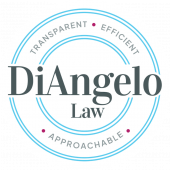While the internet makes our lives way easier, it makes intellectual property laws way more complicated. The rise of e-commerce and the digital marketplace has expanded our ideas of intellectual property and challenged the U. S. Patent and Trademark Office’s standards of trademark eligibility. Recently, these challenges made it to the Supreme Court.
On June 30th, 2020, the Supreme Court decided on the United States Patent and Trademark Office Et Al. v. Booking.com B. V. This ruling argues that the USPTO’s definition of “generic” is incorrect when it comes to digital trademark protections. Previously, companies who incorporated high-level web domains – .com, .org, .net, etc. – into their brand name would not receive trademark protections, provided that each component of their brand name was “generic.” SCOTUS’ majority ruling, as written by Ruth Bader Ginsberg, argues that these companies are actually eligible for distinction and protection.
To understand what the SCOTUS’ ruling means for e-commerce and your business, let’s first explain what trademark protections are before we unpack the Supreme Court’s decision.
Defining Trademark Protections for Digital Companies
A trademark, as defined by the USPTO, is the name which identifies and distinguishes your company and brand from the goods and services of other companies. Every company has a trademark simply by being a brand; however, different names are eligible for different levels of legal protection, as defined by the Trademark Spectrum.
Generic trademarks, or trademarks where the company’s name is indistinguishable from its services, are ineligible for legal trademark protections. Previous to the June 30th SCOTUS ruling, the USPTO considered website domains to be generic. To use Booking.com as an example, the USPTO argued that the company is ineligible for trademark protection because its name, Booking, is too generic, and “.com” is a generic suffix.
Thus, Booking.com could not receive legal protections for its brand name. These protections allow the company to protect its brand and prevent others from using the name for profit.
The Supreme Court’s decision alters this definition, offering new protections for digital entrepreneurs – and a new understanding of the importance of e-commerce.
Understanding the SCOTUS Ruling on Trademark Protections
In the United States Patent and Trademark Office Et Al. v. Booking.com B. V., the Supreme Court rules that Booking.com is eligible for trademark protection since it is not a generic trademark.
The ruling, as written by RBG, tells the USPTO that they should look at the trademark as a whole, not at its respective parts. So, although “Booking” and “.com” are generic terms individually, they are capable of distinction and protection when put together.
Essentially, if consumers recognize that the “Booking.com” brand is both valuable and distinct from other booking companies, then the name carries the weight and distinction necessary for trademark protection.
Digital entrepreneurs with “domain name” brands could now be eligible for trademark protection, where previously the USPTO would deny those protections due to its definition of genericity.
Why This SCOTUS Ruling is So Important
Previous to now, the Supreme Court has had little to say on the definition of trademarks. Trademark registrations were solely decided by the USPTO, giving them full authority to interpret trademarking definitions.
The fact that SCOTUS decided to pick up this case means that trademarks are becoming even more important. As the internet expands our understanding of what constitutes intellectual property, and as the digital marketplace becomes more essential to the global economy, SCOTUS has decided that our understanding of trademark protections and digital property needs to evolve.
Because SCOTUS picked up this case, we are hopeful that the Supreme Court will also consider other important decisions on digital intellectual property and address concerns in our evolving world. Digital entrepreneurs should pay close attention to upcoming SCOTUS decisions and emerging trends in intellectual property.
How to Distinguish and Protect Your Brand
Because the internet is so vast, digital entrepreneurs applying for would-be-generic “.com” trademark registrations must prove that their web presence is unique to secure trademark protection. Protecting your intellectual property requires documentation, unique branding, and successful registration with the USPTO. That’s why the help of a legal professional is paramount to trademark and branding success!
Are you ready to take the first step in protecting your digital property? DiAngelo Law is ready to take you there. Learn more about how we help online entrepreneurs get trademark registration, or start the next chapter of your company’s journey and reach out today.



